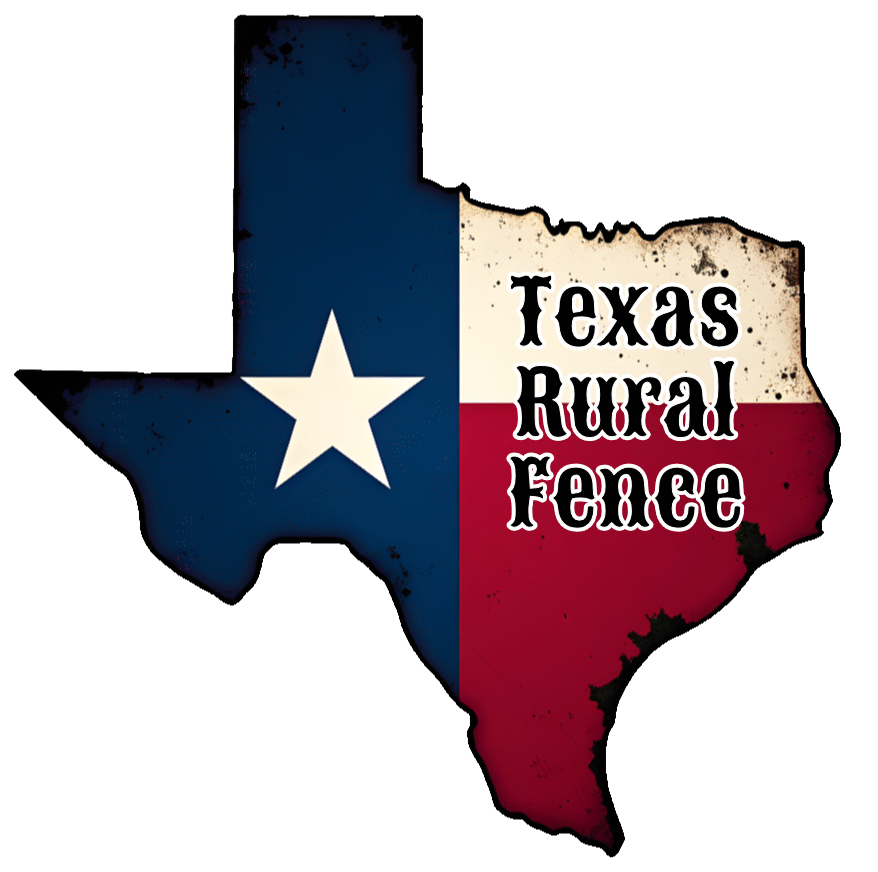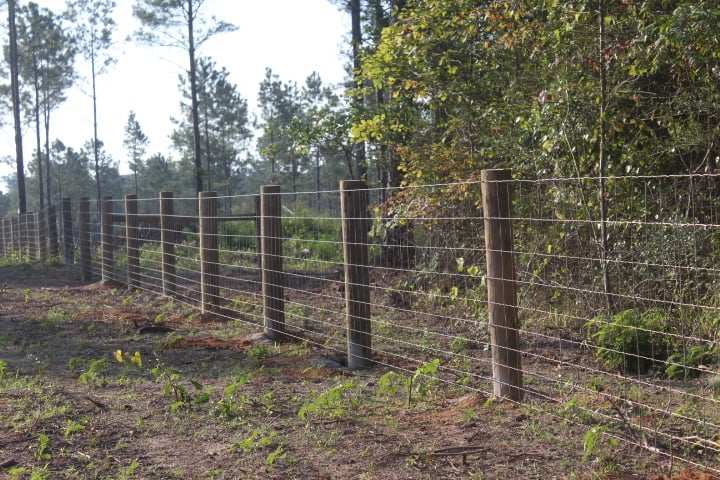Rolled Wire Fencing
Understanding the Different Styles of Rolled Wire Fencing: Which is Right for Your Property?
When it comes to fencing large areas, securing livestock, or protecting gardens and rural properties, rolled wire fencing is one of the most durable, versatile, and cost-effective options available. However, not all rolled wire fences are created equal. From field fence to welded wire, each style has unique characteristics, strengths, and specific use cases.
Here’s a breakdown of the most common types of rolled wire fencing, along with their benefits and reasons why homeowners, ranchers, and farmers in Texas might choose one style over another.
1. Field Fence (a.k.a. Woven Wire Fence)
Key Features:
Made with high-tensile steel wire woven into a mesh
Varying mesh openings from top to bottom (graduated spacing)
Typically 4′ to 5′ tall
Flexible knots like hinge-joint, fixed-knot, or square-deal styles
Benefits:
Ideal for large livestock such as cattle, goats, or sheep
Resists animal pressure with flexibility and strength
Can absorb impacts without losing integrity
Easy to install on uneven terrain due to its flexibility
Best For:
Ranchers and farmers needing affordable perimeter fencing for livestock
Large rural properties
Uneven or hilly land
2. Welded Wire Fence
Key Features:
Rigid wire panels welded at every intersection
Uniform square or rectangular openings
Commonly available in 2″x4″, 1″x2″, or 1/2″x1″ mesh sizes
Usually comes galvanized for rust resistance
Benefits:
Clean, professional appearance
Great for keeping in small animals or pets
Strong and durable for general property use
Works well with wood or metal framing
Best For:
Homeowners with dogs or gardens
Decorative fencing around homes or gardens
Light-duty animal pens or chicken coops
3. Horse Fence (Non-Climb Fence)
Key Features:
Heavy-gauge wire woven into small 2″x4″ rectangular mesh
Designed to prevent hooves from getting caught
Smooth, flexible finish with strong top and bottom wires
Benefits:
Prevents injuries in horses by minimizing snag points
Durable enough for large animal enclosures
Long lifespan when galvanized
Best For:
Horse owners
Equine facilities and barns
Pastures and riding arenas
4. Goat & Sheep Fence (1047-6 or 1348-3)
Key Features:
Woven wire design with closer vertical stays
Stronger lower mesh to prevent animals from pushing through
10-14 horizontal wires spaced 3″ to 6″ apart
Benefits:
Keeps even stubborn or aggressive animals contained
Prevents predators from squeezing through
Designed to minimize escape behavior
Best For:
Goat, sheep, and other small livestock containment
Properties dealing with predator pressure
5. Deer & Wildlife Fence
Key Features:
Taller woven or high-tensile wire (up to 8’ high)
Narrow spacing at bottom, wider spacing at top
Often made with high-tensile wire for strength and flexibility
Benefits:
Protects crops and gardens from deer intrusion
Keeps wildlife off roads or private land
Can be used to exclude or contain wildlife
Best For:
Agricultural operations with crop loss due to deer
Forested properties
Game preserves and wildlife control areas
6. Chicken Wire (Poultry Netting)
Key Features:
Thin, hexagonal wire mesh
Very lightweight and flexible
Typically available in 1″, 2″, or 3″ openings
Benefits:
Inexpensive and easy to shape or cut
Great for enclosing poultry or protecting gardens
Easy to install in temporary setups
Best For:
Chicken coops and runs
Garden protection from rabbits or critters
Temporary fencing
7. Hardware Cloth
Key Features:
Small mesh grid (1/8” to 1/2”)
Galvanized or vinyl-coated
Rigid and easy to staple or fasten
Benefits:
Keeps out snakes, rodents, and even insects
Great for vent covers, enclosures, and small animal cages
Durable and long-lasting
Best For:
Small animal protection
Rodent and pest exclusion
Garden screen barriers
Choosing the Right Rolled Wire Fence for Your Needs
Here in Texas, where terrain, climate, and ranching needs vary, selecting the right type of rolled wire fence depends on a few key factors:
What are you containing or excluding? (livestock, pets, pests, or wildlife)
How tall and how strong must the fence be?
Is aesthetics a priority, or just functionality?
Do you need flexibility for uneven terrain?
At Texas Rural Fence, Inc., we help property owners across rural Texas choose and install the right fencing for their specific needs—whether you need to keep your goats in, keep deer out, or create a safe enclosure for pets and children.
Need Help Choosing or Installing the Right Fence?
We offer professional consultation, custom gate solutions, and full-service fence installation throughout Lake Livingston and surrounding rural communities. Call (936) 933-7543 or visit www.livingstonfence.com to schedule your free site evaluation today.

